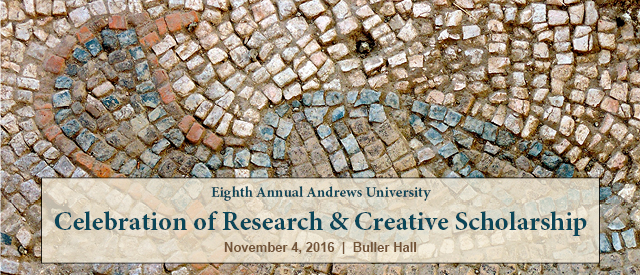P-13 Practice What You Preach: A Case Study of Priorities in Adventist Education
Presenter Status
Assoc. Professor of Leadership & Higher Education, Leadership Department
Second Presenter Status
Post Doc Student, Leadership Department
Preferred Session
Poster Session
Start Date
4-11-2016 2:00 PM
End Date
4-11-2016 3:00 PM
Presentation Abstract
After centuries of what has been termed the "Dark Ages," God has been granting special light to His people. In her deeply revealing book about this great awakening, White (1858) reveals the lives of many who sensed the responsibility of breaking barriers of misunderstood concepts, such as John Wycliffe (14th century, pp 79-96), John Hus and Jerome (15th century, pp 97-119), Martin Luther and John Calvin (16th century, pp 120-170 and pp 219-236 respectively), Isaac Newton, René Descartes, and Blaise Pascal (17th century), William Miller and the Advent Movement (19th century, pp 268-374), as well as scholars studying the Dead Sea Scrolls (20th century). A special point worth noting is that many of the above were university campus-based. The authors wonder, for the 21st-century generation, can Adventist Education continue this tradition of bringing new light? If so, they must live up to light already given and grow upon the past truths.
The Seventh-day Adventist church has had much clarity given about how Adventist education should be conducted—what should take priority. The purpose of this paper is to analyze the revealed, expected and lived priorities of one institution of higher education—Andrews University. Using this university as a case study, the results are expected to provide additional understanding as to the potential gaps in Adventist education.
The questions guiding the research are: What are the revealed, expected, and lived priorities at Andrews University? If their gaps in these priorities, what is the nature of these gaps?
P-13 Practice What You Preach: A Case Study of Priorities in Adventist Education
After centuries of what has been termed the "Dark Ages," God has been granting special light to His people. In her deeply revealing book about this great awakening, White (1858) reveals the lives of many who sensed the responsibility of breaking barriers of misunderstood concepts, such as John Wycliffe (14th century, pp 79-96), John Hus and Jerome (15th century, pp 97-119), Martin Luther and John Calvin (16th century, pp 120-170 and pp 219-236 respectively), Isaac Newton, René Descartes, and Blaise Pascal (17th century), William Miller and the Advent Movement (19th century, pp 268-374), as well as scholars studying the Dead Sea Scrolls (20th century). A special point worth noting is that many of the above were university campus-based. The authors wonder, for the 21st-century generation, can Adventist Education continue this tradition of bringing new light? If so, they must live up to light already given and grow upon the past truths.
The Seventh-day Adventist church has had much clarity given about how Adventist education should be conducted—what should take priority. The purpose of this paper is to analyze the revealed, expected and lived priorities of one institution of higher education—Andrews University. Using this university as a case study, the results are expected to provide additional understanding as to the potential gaps in Adventist education.
The questions guiding the research are: What are the revealed, expected, and lived priorities at Andrews University? If their gaps in these priorities, what is the nature of these gaps?



